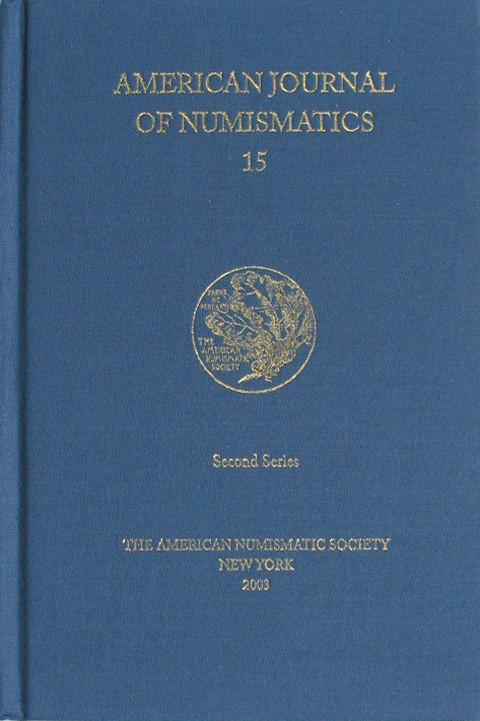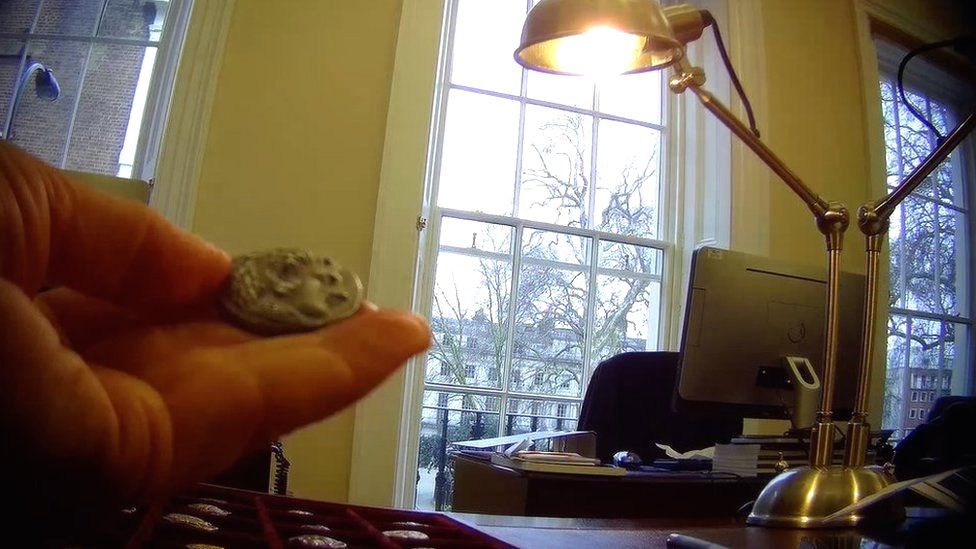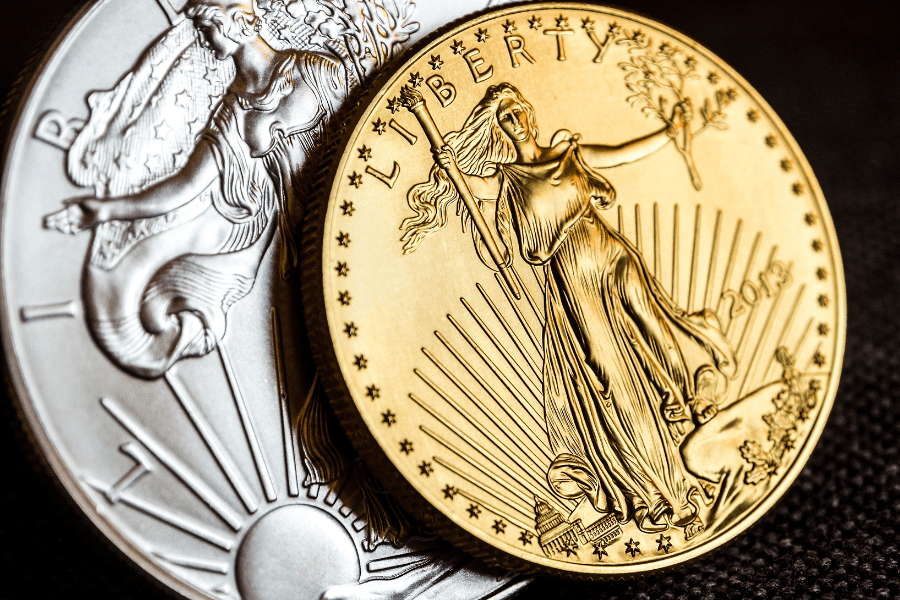Excellent Suggestions On Selecting Coin Series And Banknote Collection
Excellent Suggestions On Selecting Coin Series And Banknote Collection
Blog Article
How Can I Research Numismatics With Respect To Museums Using A Database?
You can use a database in order to find out about exhibitions, collections of museums and research. Here's how you can do it: There are a variety of museum databases, such as those provided by the British Museum or the Smithsonian Institution. Additionally, you can use online platforms that specialize in artifacts and museum collections.
Define Research Focus: Specify your research objectives. Are you seeking information on the numismatic collection of a specific museum? exhibits featuring coins, academic articles about numismatics or the the historical and cultural contexts that surround numismatic displays. Clarify your focus to guide your search.
Search Strategy: Choose keywords relevant to museums and numismatics like "numismatic collection," "coin exhibitions," "museum catalogue," and include specific museum names or locations if applicable. Advanced search options to filter results by date and collection type.
Data Collection: Access to details regarding the numismatic artifacts that are in museums. It includes detailed descriptions and images of artifacts along with information on their provenance, as well as their historical significance. Look through digital catalogues that catalog the coins according to time, civilisation, or thematic exhibits.
Analysis: Analyze the data to comprehend the importance of numismatic collections in museums. Study the way museums present and interpret coins as part of larger narratives of culture and history. Examine the different ways museums exhibit items numismatic. Concentrate on strategies for education as well as interpretive frameworks, among other elements.
Cross-Reference: Check the validity of your study by cross-referencing information from multiple museum databases and research sources. This helps to ensure that your research is complete and accurate and allows you to get complete knowledge of the numismatics in museums.
Documentation: Documentation is important. Note sources and the methods employed. Detail the databases that you've accessed, the keywords, and their relevance to your query.
Be up-to-date The numismatic and museum collections are always evolving. Check databases regularly for information on the latest acquisitions, temporary exhibits or scholarly papers that may enrich your research.
Databases can be used to investigate numismatics at the interplay with museums by following these simple steps. This method allows for a thorough examination into the presentation and interpretation of the coins and also scholarly exploration within the context of museums. This can provide insights into historical, cultural and educational value. Follow the best my website platinum for blog tips including shekel, coin marketplace, banknote holder, dollar, federal reserve, coin certification, commemorative, coin magazine, mint condition, coin dealer and more.
What Can I Do To Research Numismatics In Relation To Coin Dealers Using A Database?
For numismatic research, it is important to use databases that offer information about dealer listings, market trends, historical transactions, and transactions in numismatics. Here is a methodical way to conduct this type of research: Database Selection: Select databases that are specialized in numismatics and dealer listings. Market places for numismatics online and dealer directories run by numismatic groups (such the Professional Numismatists Guild), and auction house databases are a few examples.
Define Research Focus: Specify your research objectives. You might be interested in history and profiles of particular coin dealers, in the trends of sales in numismatics or in the price of coins throughout the years. Find your niche to direct your research.
Search Strategy: Use terms such as “coin dealers,” "numismatic marketplace,"" "dealer listings," and geographic areas or names of specific dealers when appropriate. Advanced search is a way to sort results by dealer specialties, such as ancient coins or contemporary coins.
Data Collection: Access detailed details about coin dealers, such as the name of the business, their location, specialties or years of operations, and historic profiles. Get details on prominent dealers, their contributions to numismatic research or collecting communities, as well as their participation in auctions and sales.
Analysis: Analyze information to better know the role dealers have in the world of numismatics. Explore the role of dealers in influencing market changes.
Cross-Reference: Check the validity of your research by cross-referencing data from various databases, dealer directories and auction data. This ensures that your research is reliable and complete, as well as providing insight into the various functions and contributions that coin dealers make to the field of numismatics.
Documentation - Record your findings in a systematic manner including the sources you used and noting methods. Provide the databases you that you have used as well as the search term(s) used, as well as the importance of each source to your question.
Stay updated: The numismatic market and dealer landscape change with the introduction of the introduction of new auctions, dealer entries, and market developments. Keep up to date by logging in to updates from numismatic society, auction houses and online marketplaces.
Databases can be utilized in a way that is effective to study numismatics, especially as it relates coin dealers. This method lets you study the history of dealers in the field, their market impact and also the scholarly contributions they have contributed to the field of numismatics. Take a look at the recommended proof coins blog for website info including currency exchange, banknote identification, banknote album, coin blank, coin issue, coin display, krona, quarter, denomination, coin collecting and more.
How Do I Locate Lawyers Who Are Numismatics Experts By Using A Database?
This type of research can be carried out in a structured manner by using databases focused on numismatics and coinage regulations as well as currency laws, legal precedents and academic papers. An organized approach is offered to aid you in your research. Some examples are legal research platforms like Westlaw or LexisNexis as well as numismatic law journal, and publications from numismatic societies.
Define Research Focus: Specify your research objectives. Are you interested in understanding legal frameworks governing coinage and currencies, numismatic disputes rules governing coin production and circulation, or the legal definitions of authenticity of numismatics and ownership? Determine where you wish to focus your search.
Search Strategy: Add keywords like "numismatic law" or "legal aspects coinage," or "numismatic conflicts," and include specific legal concepts, such as ownership, authenticity and counterfeiting, if relevant. Advanced search options allow you to filter by date, jurisdictions (national or worldwide) and legal issues relevant to numismatics.
Data collection: Search for the legal precedents, court cases, legislative texts, and articles on numismatic law. Gather case summaries as well with legal analyses, interpretations or relevant statutes. Also, find historical perspectives as well as information on numismatic law.
Analyze data to understand the what the legal implications are and how to overcome challenges in numismatics. Explore how legal frameworks affect the numismatic market, collection management process, authentication, and international trade in numismatic items. Compare and contrast the legal interpretations in different jurisdictions and the past.
Cross-Referencing. Make sure that the information you have is true by cross-referencing it across multiple databases. This includes legal journals, court documents and academic papers. This will ensure the accuracy and completeness of your research, providing a comprehensive view of the legal landscape within the field of numismatics.
Documentation: Record your findings systematically, citing sources and noting methodologies used. Take note of the information in the databases you accessed, the search terms used as well as the importance each resource has to your research question.
Keep up-to-date. Legal interpretations of numismatic numismatics and laws are subject to change due to changes in legislation or court decisions. Stay up to date by keeping track of updates from legal databases and numismatic law journals, and updates from numismatic societies on legal developments.
By following these steps, you will be able to allow you to effectively use databases to research numismatics with the help of experts in the field of law. This method lets you investigate the legal frameworks, challenges and scholarly interpretaions that intersect the subject. See the most popular copyright detection info for website tips including rand, banknote grading, coin, coin artist, currency authentication, peso, coin production, mint, coin, banknote rarity and more.
How Can I Research Numismatics By Using A Database On Online Forums And Communities?
To conduct such research, here's a logical method: Database Selection: Select online communities and forums that are specialized in the field of numismatics. These sites let collectors, fans and experts to exchange knowledge, discuss current trends and showcase collections. This is a method that can be structured to carry out such research. Examples include forums like CoinTalk and Reddit's R/Coins. You can also find groups that specialize in numismatics on social media sites such as Facebook and LinkedIn.
Define Research Focus: Specify your research objectives. Are you interested in understanding the latest trends in collecting, or discussing particular coins or historical periods, obtaining advice regarding authentication and grading or connecting to experts in the specialized fields of Numismatics? Clarify your interests to help guide your research.
Search Strategy: Use keywords that are relevant to your needs for example "numismatic communities," "coin-collecting forums," or "online discussions on numismatics" and even specific topics (ancient coin or modern coin, paper money) or keywords that relate to your research questions. Utilize the search functions on these platforms to discover relevant discussions.
Data collection: Look for information within the threads, discussions and blogs of online communities and forums. Find out about coin identification techniques as well as current market trends, personal experiences and discussions related to numismatics.
Analyze your data to gain a better understanding of the opinions and experiences of those who belong to the online numismatic community. Examine the veracity of information by evaluating the experience of the contributors, the consensus of the members on certain topics, and the quality of the discussions.
Cross-Referencing Check your findings by cross-referencing across forums and communities. Examine the insights of different platforms to get a more comprehensive view of trends, market sentiments, and expert guidance within the numismatic community.
Documentation: Documenting your findings is essential. Note specific threads, discussions issues, and contributors as necessary. Record key insights, trends and views that are discussed in the forums and communities on the internet.
Be involved: Participate in discussion and post questions to find out more about and build connections within the community of numismatists. Keep up-to-date with the latest threads, replies, and announcements to keep abreast of current trends and discussions.
Follow these steps to successfully make use of forums and online communities for numismatic research. This will allow you to benefit from the collective wisdom and experience of a wide collection of experts and collectors with valuable insight and perspectives on different aspects of coin collecting, identification, and appreciation. Check out the most popular antique banknotes for blog info including rare banknotes, legal tender, coin book, legal tender, coin news, currency appraisal, precious metals, banknote catalog, banknote forum, banknote show and more.
How Do I Search A Database In Numismatics To Find Networking Opportunities?
When conducting research in numismatics that is focused on networking, it's crucial to use databases and other platforms. These platforms will enable you to connect with dealers, collectors scholars and enthusiasts. This is a systematic method to conduct this research. Selecting a Database: Choose databases and platforms which specialize in networking opportunities for numismatics. Examples include numismatic society websites as well as forums on the internet (such as CoinTalk, Reddit's CoinTalk, and r/Coins) and social media groups (on Facebook, LinkedIn), and professional networking platforms.
Define Research Focus. Specify Your Goals for Networking. Are you seeking an opportunity to engage with collectors in order for them to exchange knowledge and share experiences Are they seeking your help in making purchases or selling items and would you like to work with academics in research, or participate in conferences or numismatic shows and occasions with other scholars or researchers? Clarify what you are looking for to narrow down your search.
Search Strategy - Use key words for example "numismatic networking," coin collectors forums," numeric social media groups," and specific interests or geographical regions if relevant. Use the search functions within platforms to find groups as well as events and forums that are relevant.
Access data on networking within the numismatic community. Data collection: Get information about networking opportunities within the numismatic community.
Analysis: Examine and pinpoint relevant networking opportunities and channels. Analyze the levels of engagement in forums and groups and the variety of the participants (collectors dealers, scholars, etc.), the frequency of updates and discussions and the possibility of professional or academic collaborations.
Cross-Reference: Confirm the data you've gathered by comparing it with other databases, websites of society for numismatics or social media organizations, as well as professional networking platforms. This allows you to find a comprehensive network of opportunities across different regions and platforms.
Engagement: Participate in your chosen networks by actively participating by sharing your knowledge, asking for questions and sharing your knowledge. Create connections with collectors, dealers and scholars in order to build your network and exchange valuable information about numismatics.
Documentation: Keep a systematic record of your networking efforts, including the networks you use, groups you join, events that are attended, and contacts established. Keep track the results and opportunities you gain by networking.
These steps can help you discover numismatics as a means to build a network. This will allow you to extend your professional or personal network within the numismatic community, facilitating collaborations, knowledge exchange as well as participation in numismatic gatherings which enhance your knowledge and participation within the field. Check out the top rated look at this for coin rarity for site recommendations including yen, proof coins, coin catalog, zloty, coin series, platinum, coin authenticity, rand, forint, engraving and more.